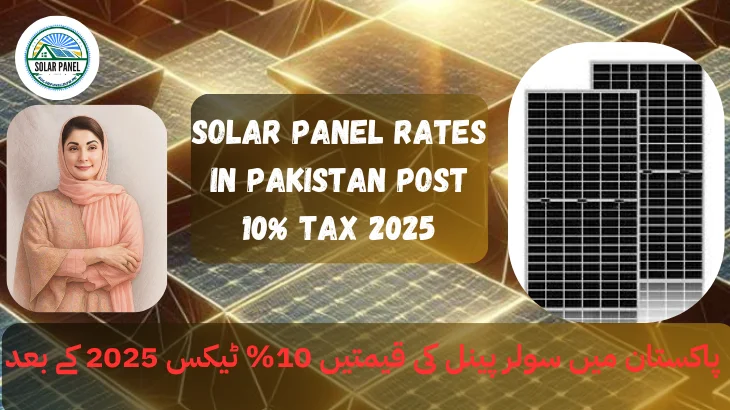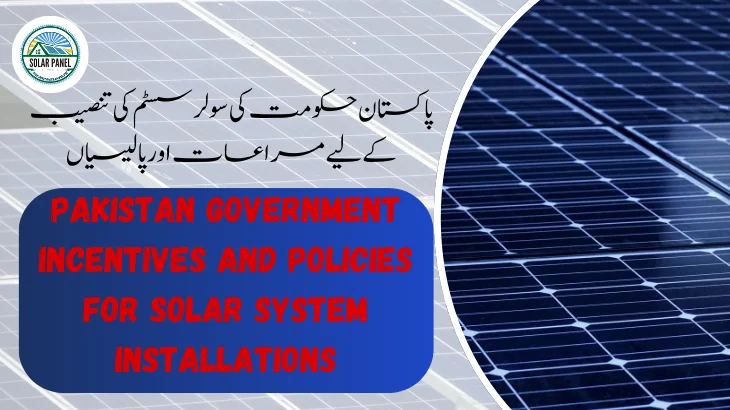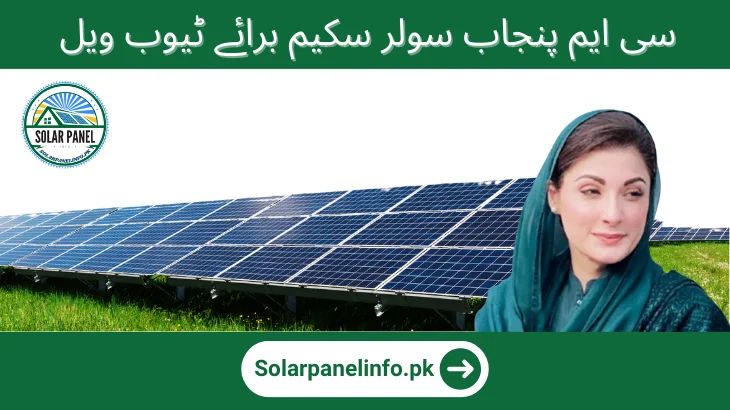Solar Panel Rates in Pakistan Post 10% Tax 2026
The federal government of Pakistan is set to implement a 10% tax on imported solar panels starting 2026, as part of the Finance Bill 2025-26. Initially proposed at 18%, the tax was lowered following feedback from the business community. This decision is aimed at increasing revenue but has raised concerns among solar consumers, traders, and environmental advocates about its potential impact on solar panel prices and the country’s renewable energy market. The article will discuss the Solar Panel Rates in Pakistan Post 10% Tax 2026.
Read more: Solar Panel Prices May Rise as an 18% Tax is Proposed

پاکستان کی وفاقی حکومت مالیاتی بل 2025-26 کے حصے کے طور پر یکم جولائی 2026 سے درآمدی سولر پینلز پر 10 فیصد ٹیکس لاگو کرنے کے لیے تیار ہے۔ ابتدائی طور پر 18 فیصد تجویز کیا گیا تھا، کاروباری برادری کے تاثرات کے بعد ٹیکس میں کمی کی گئی۔ اس فیصلے کا مقصد آمدنی میں اضافہ کرنا ہے لیکن اس نے شمسی توانائی کے صارفین، تاجروں اور ماحولیات کے حامیوں میں شمسی پینل کی قیمتوں اور ملک کی قابل تجدید توانائی کی مارکیٹ پر اس کے ممکنہ اثرات کے بارے میں تشویش پیدا کر دی ہے۔ مضمون میں اس نئے ٹیکس کے اثرات اور پاکستان میں شمسی توانائی کی مسلسل استطاعت پر بات کی جائے گی۔
Impact of the 10% Tax on Solar Panel Prices
Before July 2025, solar panels in Pakistan were largely tax-free, facilitating the transition to clean energy. Recently, a 10% sales tax has been introduced, leading to increased prices for solar panels.
Here’s a rough idea of what to expect for the updated solar panel prices in Pakistan after this change:
| Solar Panel Capacity | Old Price (PKR) | New Price After 10% Tax (PKR) |
| 180 Watt | 5220 | 5500 |
| 330 Watt | 10230 | 10600 |
| 550 Watt | 17600 | 18100 |
| 600 Watt | 19200 | 19600 |
New Solar Panel Prices from 2026
Current prices for solar panels range from Rs 28 to Rs 38 per watt, varying by brand and quality. A 10% tax will increase the cost of imported panels, with new prices to be announced in July 2025. Prime Minister Muhammad Shehbaz Sharif supports the growth of solarization in the country, praising it as an affordable electricity generation method globally.
Market Reaction and Consumer Concerns
The solar industry, alongside consumers, is buzzing with concern over the new tax, which has the potential to impact the momentum of solar energy adoption! This development could particularly hit middle-income households hard. But it doesn’t stop there; businesses, agricultural operations, and large-scale solar projects, all reliant on affordable solar solutions, are also in the crosshairs. With costs climbing, many are now rethinking or postponing their plans to go solar. Experts are sounding the alarm, suggesting that this shift could slow down Pakistan’s ambitious journey toward clean energy goals and energy independence. The stakes are high, and the future of solar energy hangs in the balance!
Government’s Perspective
The government defends the tax by claiming that:
- It is a step towards widening the tax base.
- It will assist in managing the solar import market.
- The long-term strategy involves encouraging domestic solar panel production to lessen dependence on imports.
Nevertheless, experts argue that immediate support or incentives should be provided to help the solar industry thrive without significant disruption.
Is Solar Still a Good Option in 2026?
Despite the increase in costs, investing in solar energy remains a wise choice in Pakistan because of:
- Escalating electricity prices from the grid.
- Regular power outages occur in various regions.
- Significant long-term reductions in electricity expenses.
- Solar panels generally have a payback period ranging from 3 to 5 years.
Moreover, existing net-metering regulations enable consumers to sell surplus electricity back to the grid, enhancing the economic advantages of adopting solar energy.
Solar Progress: PM Unveils Smart Power App
The Prime Minister launched the ‘Apna meter; Apni reading’ app by the Ministry of Energy, emphasizing its role in Pakistan’s solarization efforts. He described it as a significant reform that benefits consumers and improves provincial coordination, available in five languages. The ceremony was attended by various ministers, parliamentarians, and relevant authorities.
Conclusion
The 10% duty on imported solar panels in Pakistan, starting in 2026 is expected to raise the prices of solar panels, creating difficulties for consumers and businesses looking to transition to renewable energy. Nevertheless, in spite of the increase in costs, solar energy still stands out as one of the most affordable and sustainable options available in the country. As grid electricity prices climb and power outages become more common, solar energy continues to provide significant long-term savings and autonomy in energy usage. The government needs to strike a balance between generating revenue and implementing supportive policies to ensure the growth of the solar sector and its accessibility for everyone.
پاکستان میں درآمدی سولر پینلز پر 2026 سے شروع ہونے والی 10% ڈیوٹی سے شمسی پینلز کی قیمتوں میں اضافہ متوقع ہے، جس سے صارفین اور کاروباری اداروں کے لیے مشکلات پیدا ہوں گی جو قابل تجدید توانائی کی طرف منتقلی کے خواہاں ہیں۔ بہر حال، لاگت میں اضافے کے باوجود، شمسی توانائی اب بھی ملک میں دستیاب سب سے سستی اور پائیدار اختیارات میں سے ایک ہے۔ جیسے جیسے گرڈ بجلی کی قیمتوں میں اضافہ ہوتا ہے اور بجلی کی بندش عام ہوتی جاتی ہے، شمسی توانائی توانائی کے استعمال میں طویل مدتی بچت اور خود مختاری فراہم کرتی رہتی ہے۔ حکومت کو سولر سیکٹر کی ترقی اور ہر کسی کے لیے اس کی رسائی کو یقینی بنانے کے لیے ریونیو پیدا کرنے اور معاون پالیسیوں کے نفاذ کے درمیان توازن قائم کرنے کی ضرورت ہے۔
FAQ’s
When will the 10% tax on solar panels start in Pakistan?
The 10% tax will be implemented from 2026.
Will solar panels still be affordable after the tax?
Yes, solar panels will continue to provide long-term savings despite the initial price increase due to the tax.
What is the government’s goal behind this new tax?
The government plans to broaden the tax base and encourage local solar panel manufacturing in the long term.


